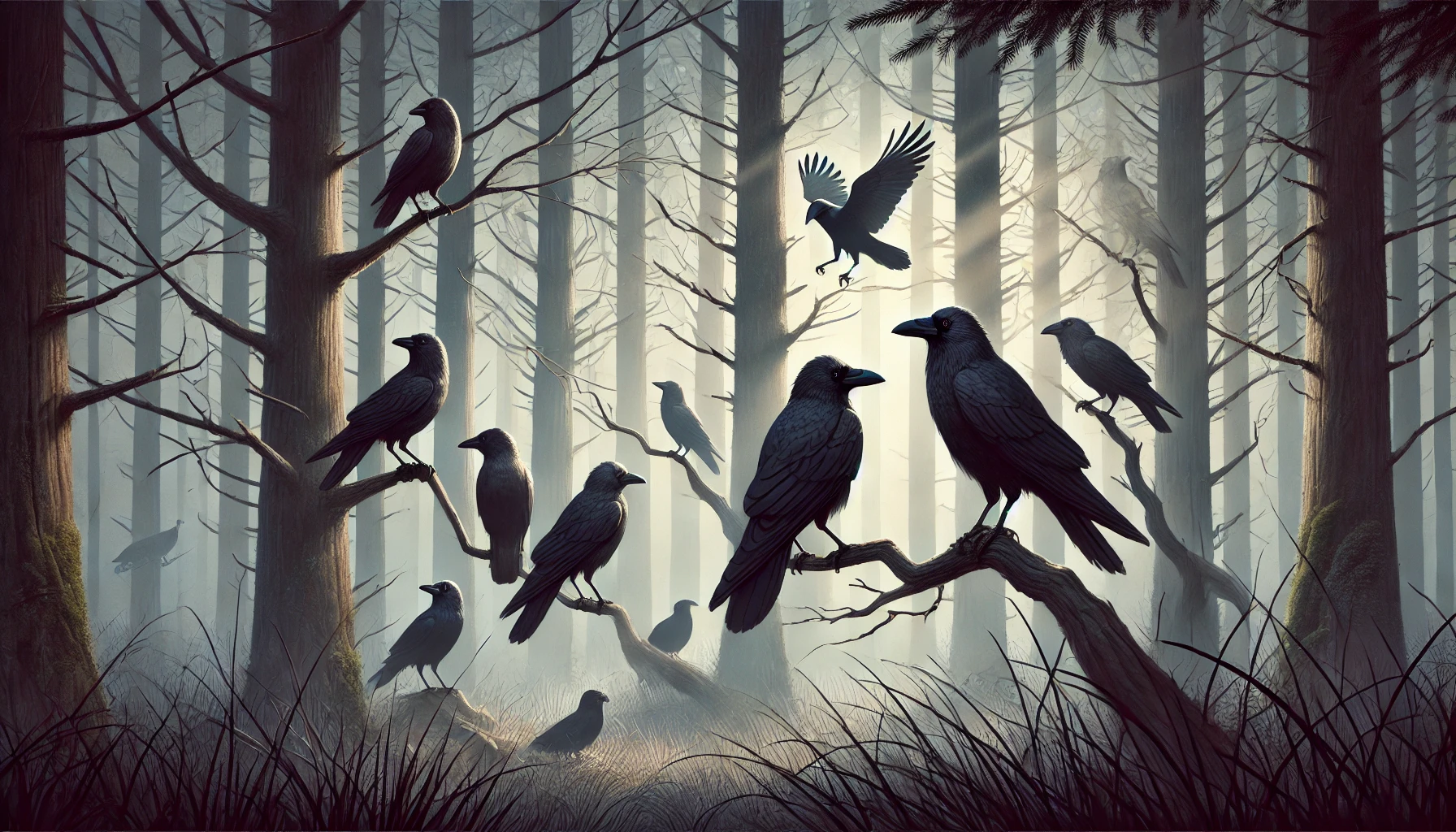Interesting Facts About Crows and Their Intelligence
Interesting Facts About Crows and Their Intelligence
Table of Contents:
- Introduction to Crows and Their Intelligence
- The Different Species of Crows
- How Crows Communicate and Use Tools
- The Role of Crows in Ecosystems
- How to Attract and Care for Crows in Your Backyard
- Conclusion: Understanding the Unique Nature of Crows
Interesting Facts About Crows and Their Intelligence
Crows are some of the most intelligent birds on the planet, known for their problem-solving abilities, complex social behaviors, and remarkable memory. These highly adaptable birds are found all over the world and are a key part of many ecosystems. In this article, we will explore interesting facts about crows, their intelligence, and their crucial role in the natural world.
1. The Different Species of Crows
There are over 40 species of crows found across the globe, belonging to the Corvidae family, which also includes ravens, magpies, and jays. Some of the most common species are the American crow, the carrion crow, and the hooded crow. The American crow, found throughout North America, is known for its distinctive cawing sound and social nature. The carrion crow is common in Europe and Asia and is often seen scavenging in open fields and urban environments. The hooded crow, recognized by its gray and black plumage, is native to parts of Europe and the Middle East. Each species of crows has adapted to its specific environment, showcasing the bird’s incredible versatility.
2. How Crows Communicate and Use Tools
One of the most fascinating aspects of crows is their ability to communicate and use tools. Crows have complex vocalizations that they use to communicate with each other, alerting their group to potential threats or signaling the availability of food. Studies have shown that crows can recognize human faces and even warn other crows of specific individuals they perceive as dangerous.
In addition to their communication skills, crows are known for their use of tools. They have been observed using sticks to extract insects from tree bark or using leaves and other materials to create tools that help them solve problems. In one famous experiment, New Caledonian crows demonstrated the ability to bend a wire into a hook to retrieve food from a container, proving their problem-solving intelligence.
3. The Role of Crows in Ecosystems
Crows play an important role in maintaining healthy ecosystems. As omnivores, they feed on a wide variety of foods, including insects, small animals, fruits, and carrion. By scavenging on dead animals, crows help to clean up the environment and prevent the spread of diseases. Their diet also includes pests like caterpillars and beetles, making them beneficial for controlling insect populations in both urban and rural settings. Crows are also known to disperse seeds, helping plants to grow in different areas, which contributes to ecosystem diversity.
4. How to Attract and Care for Crows in Your Backyard
Attracting crows to your backyard can be a rewarding experience, as they are highly social and interactive birds. To attract crows, provide a consistent source of food, such as nuts, seeds, or meat scraps. Crows are particularly fond of peanuts in the shell. Make sure to place the food in an open space where they can easily spot it. Providing fresh water for drinking and bathing is also essential.
If you plan to care for crows, it is important to be patient, as they are cautious birds that take time to trust humans. Avoid feeding them processed or unhealthy foods, as this can harm their health. Creating a safe environment by minimizing threats from predators, such as cats or hawks, will also encourage crows to visit and stay in your yard.
5. Conclusion: Understanding the Unique Nature of Crows
In conclusion, crows are remarkable birds known for their intelligence, complex social structures, and important role in ecosystems. Their ability to use tools and communicate with each other showcases their advanced cognitive abilities. Whether admired for their problem-solving skills or appreciated for their role in maintaining ecological balance, crows continue to captivate bird enthusiasts and researchers alike. By learning more about crows, we can appreciate the vital contributions they make to the natural world and the fascinating behaviors that set them apart from other birds.

<ⓒ WizardMedics (wizardmedics.com)>






